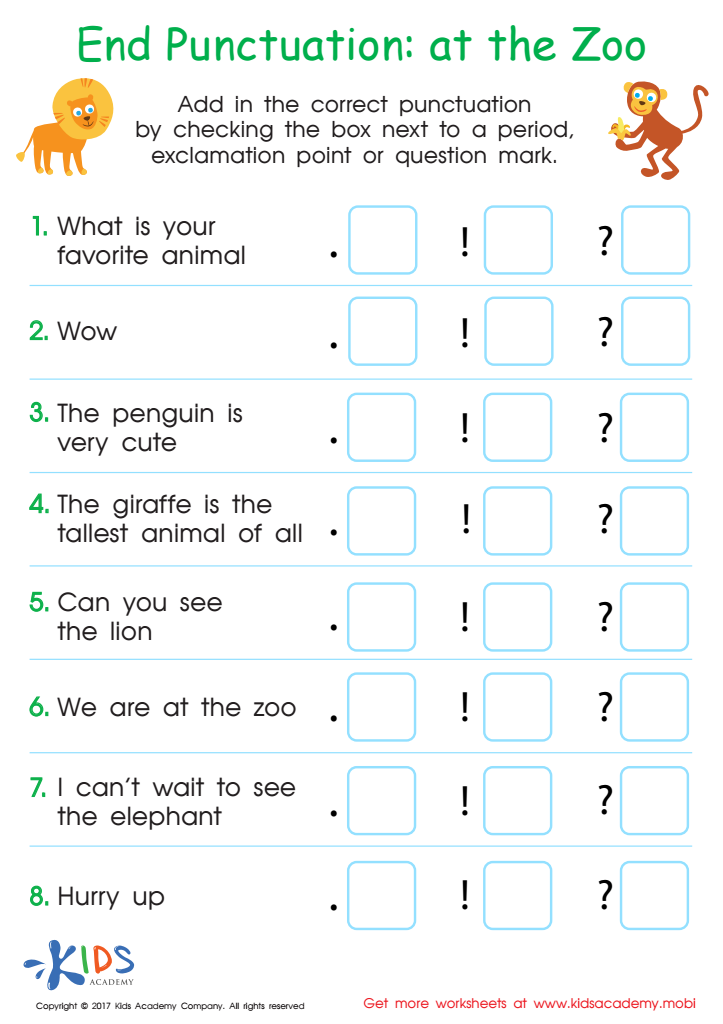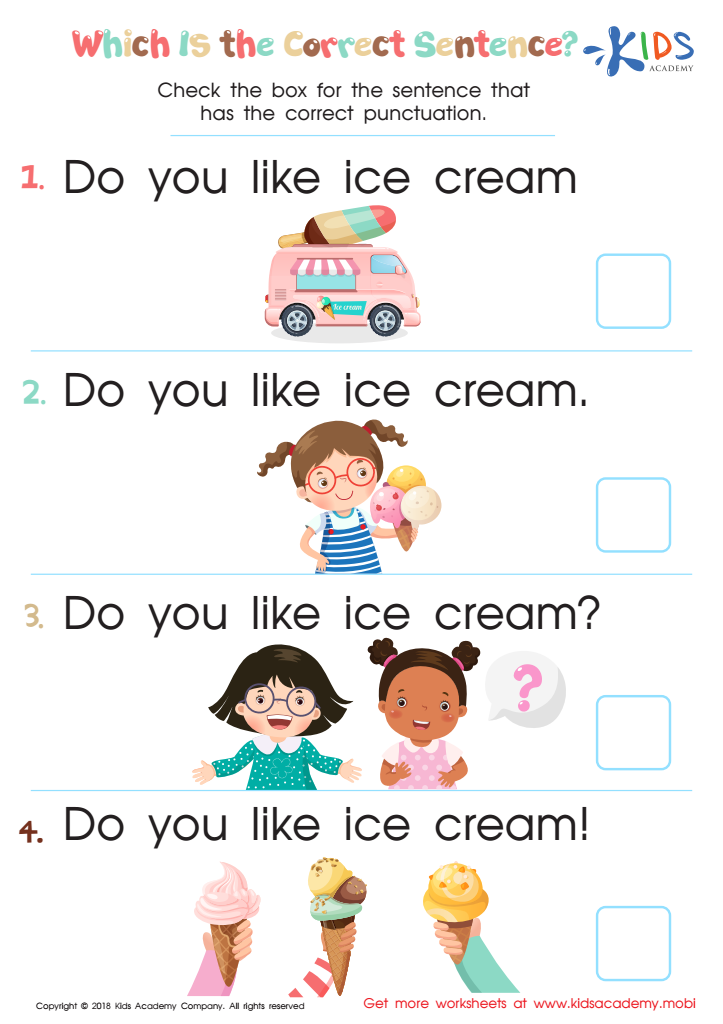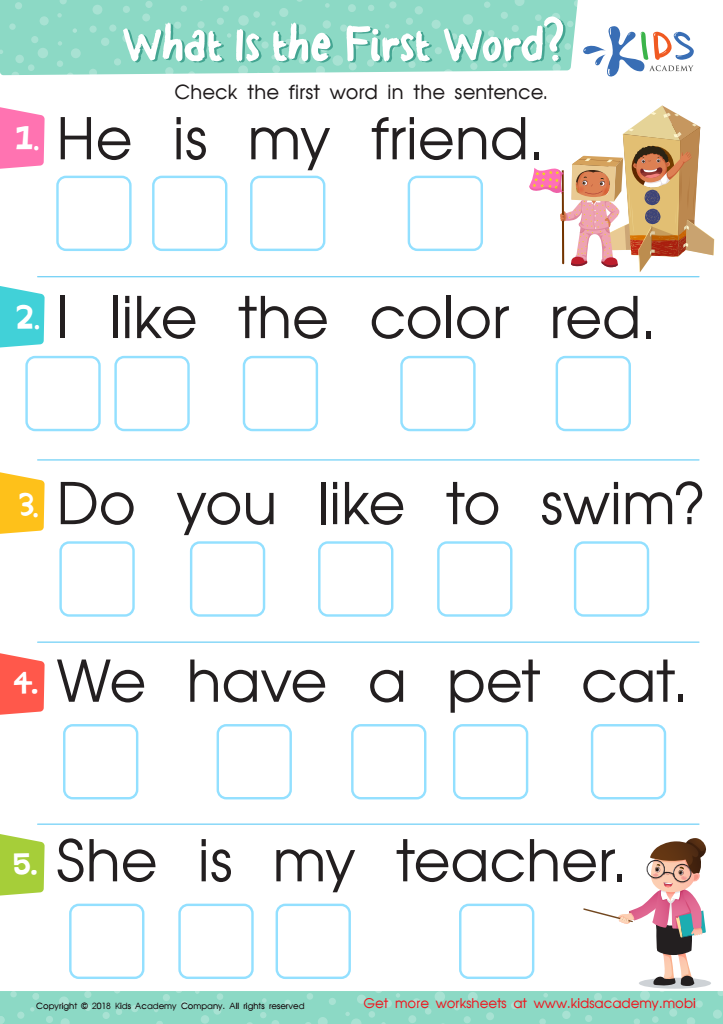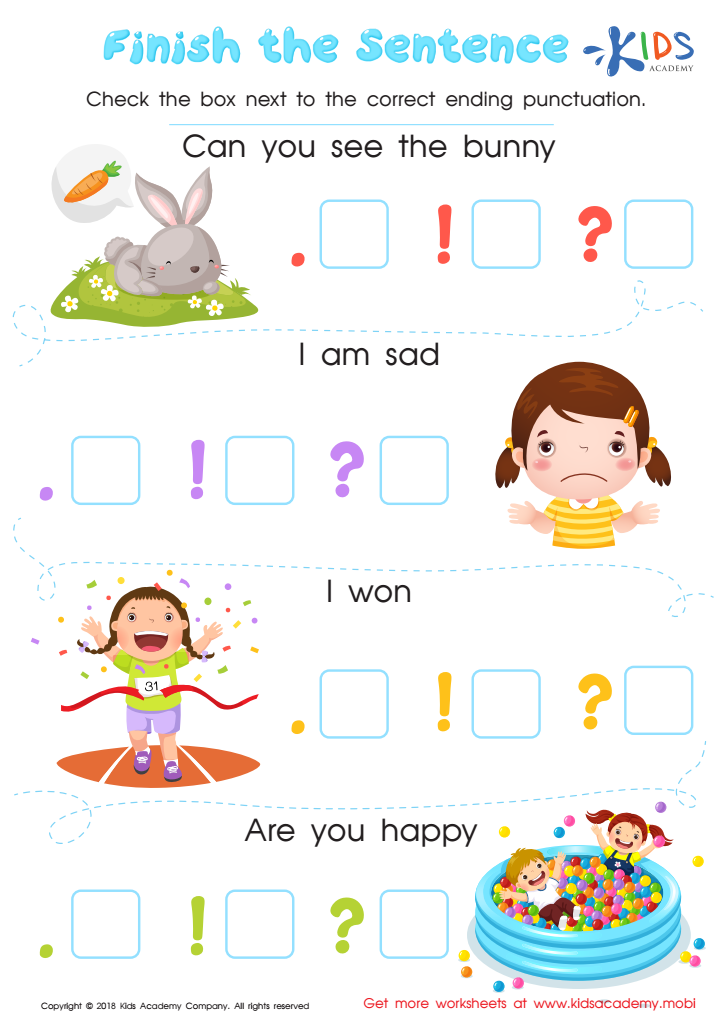Reading comprehension Normal Punctuation Worksheets for Ages 4-7
4 filtered results
-
From - To
Enhance your child's reading comprehension skills with our engaging Normal Punctuation Worksheets designed specifically for ages 4-7. These worksheets provide fun, interactive exercises that help young learners recognize and apply punctuation in sentences. By practicing punctuation usage, children will improve their understanding of sentence structure and meaning, making reading a more enjoyable experience. Each worksheet is colorful and age-appropriate, encouraging kids to develop their writing and analytical skills in a playful way. Ideal for both classroom environments and home learning, these worksheets will help build a strong foundation for your child's literacy journey. Start nurturing their love for reading today!


End Punctuation: At the Zoo Worksheet


Which is the Correct Sentence? Worksheet


What is the First Word? Worksheet


Finish the Sentence Worksheet
Reading comprehension is a critical skill that sets the foundation for future academic success, particularly for children aged 4-7. During this formative period, kids are not just learning to read; they are learning to understand and engage with what they read. Parents and teachers should care about reading comprehension because it promotes cognitive development, enhances vocabulary, and fosters critical thinking skills.
When children grasp reading comprehension, they can connect new information with their existing knowledge, making learning more meaningful. This capacity to understand stories, instructions, and educational materials allows them to engage more fully in both classroom and home environments.
Moreover, strong reading comprehension skills encourage a love for reading, which is vital for lifelong learning. Children who enjoy reading are more likely to explore diverse subjects, enhancing their creativity and imagination.
Additionally, reading comprehension is linked to emotional development. As children comprehend stories, they develop empathy by relating to characters’ feelings and experiences. This insight into others' emotions is crucial for social interactions.
In summary, investing in reading comprehension for young children not only significantly impacts their educational journey but also supports their overall growth and development as informed, empathetic individuals.
 Assign to My Students
Assign to My Students














